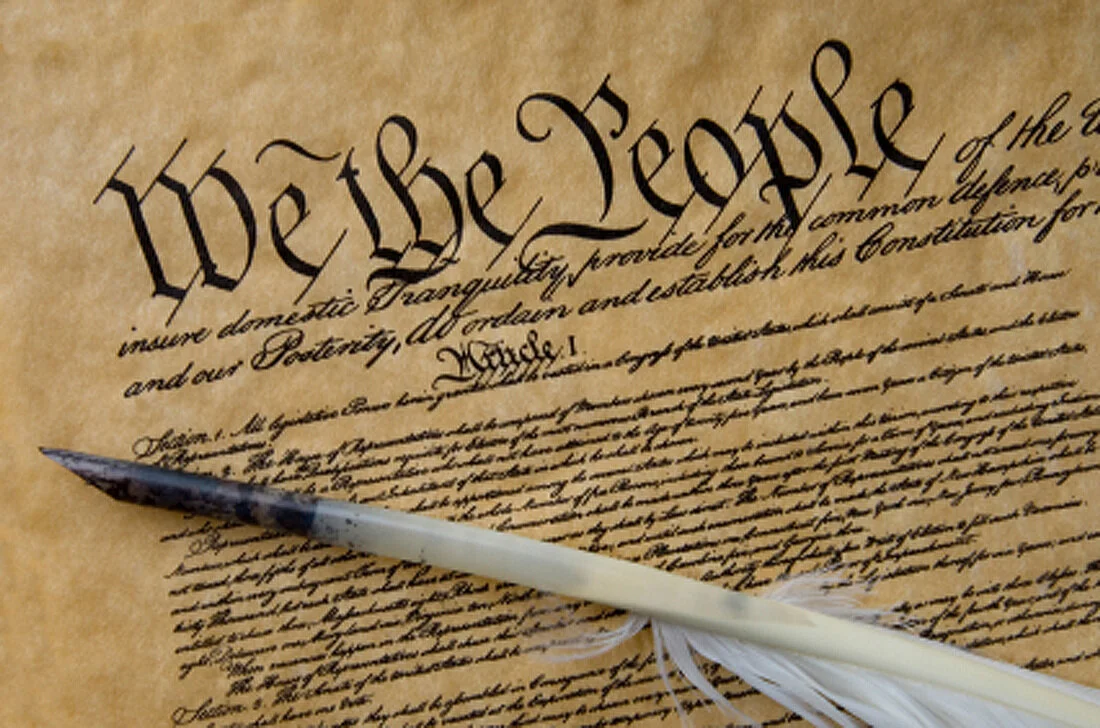Constitutional Litigation Attorneys
Muchmore & Associates PLLC provides representation to individuals and organizations whose constitutional rights have been violated. Our attorneys can prosecute a constitutional or civil rights lawsuit from inception to judgment, and will not seek any compensation unless the claim is successful. Our firm has had particular success in litigating First Amendment challenges to municipal legislation, including one lawsuit resulting in the repeal of the NYC Cabaret Law, which effectively prohibited dancing in the City of New York until 2017, and another resulting a narrowing interpretation of the NYC Avigation Law to allow the licensed use of drones in NYC airspace for commercial cinematography.
We do not accept most claims that are presented to us, but if you have sufficient evidence in support of your claim and it involves an important issue of constitutional law, the firm's attorneys will prosecute it capably and aggressively. There are often narrow windows of opportunity in which to assert a claim, including the 90-day notice of claim period applicable to tort claims in New York State under New York General Municipal Law § 50-e, and the six-month notice of claim period for claims against the City of New York under New York City Administrative Code § 7-201. If you believe your constitutional rights have been violated, you should contact our attorneys to determine if your claim is viable.
Litigation in the Public Interest
We have represented prisoners in relation to abuses by corrections officers and government employees punished for speaking out. We have challenged the constitutionality of local laws in federal court, including a lawsuit resulting in the repeal of the New York City Cabaret Law. The firm's efforts have been recognized by major media outlets such as the Wall Street Journal, the ABA Journal and the New York Post. We handle claims involving freedom of speech, freedom of association, freedom of religion, equal protection of the law, uncompensated takings, cruel and unusual punishment or due process. We also represent defendants in challenging unscrupulous practices by plaintiffs’ attorneys, including copyright trolls and lawsuits seeking to exploit ambiguity in accessibility requirements for websites.
First Amendment Claims: The First Amendment to the U.S. Constitution secures freedom of speech, freedom of assembly, and freedom of religion. Freedom of speech is strictly protected, meaning that for the government to regulate speech its action must be necessary to advance a compelling governmental interest. First Amendment association rights are most frequently invoked in the context of political demonstrations. Religious freedom is protected by the First Amendment's Free Exercise Clause, which prevents the government from interfering with the free exercise of one's religion, by the Establishment Clause, which prohibits government from promoting a particular religion or religion in general, and by the Religious Freedom Restoration Act.
Fourth Amendment Claims: The Fourth Amendment protects against unreasonable searches and seizures. It provides that police searches must ordinarily be conducted according to the provisions of a search warrant. Certain exceptions exist, such as searches incident to lawful arrests, items in plain view, items on public school property and "exigent circumstances". Whether a search is conducted pursuant to a warrant or one of the exceptions, the search must be supported by probable cause. In addition, the Fourth Amendment has been found to encompass a broader right to privacy.
Fifth Amendment Claims: The Fifth Amendment protects against double jeopardy, self-incrimination, uncompensated takings, and violations of due process. The Takings Clause of the Fifth Amendment is most frequently invoked in constitutional litigation. It prohibits the government from taking private property for public use without just compensation. This applies where the government takes property for public use through its power of eminent domain. It can also apply in the context of regulatory takings, where the government deprives a citizen of substantially all the value of his property by way of regulation, and that regulation is more in the nature of a taking for public use than an injunction against a public nuisance.
Eighth Amendment Claims: The Eighth Amendment prohibits cruel and unusual punishments. This provision is most frequently litigated in prisoner litigation, where prisoners are deprived of food or water, kept for extended periods in solitary confinement, physically beaten and sexually assaulted by corrections officers. Prisoner claims are particularly difficult to litigate because of the Prisoner Litigation Reform Act, requiring prisoners to exhaust administrative remedies before litigating.
Fourteenth Amendment: The Fourteenth Amendment contains two of the most important sources of rights in the Constitution, the Due Process Clause and the Equal Protection Clause. The Due Process clause prohibits deprivations of life, liberty or property without due process of law. Under the doctrine of substantive due process, it has been extended to afford substantive protections where other rights enumerated in the Bill of Rights provide inadequate protection. The Equal Protection Clause of the Fourteenth Amendment requires all citizens to be granted the equal protection of the laws, meaning that persons who are similarly situated must be similarly treated by their government.
Title VII and New York Human Rights Law Claims: Title VII of the Civil Rights Act of 1964 prohibit discrimination on the basis of race, gender, religion or national origin. Violations give rise to a civil claim for any resulting damages and recovery of attorneys' fees. This is one of the only exceptions to New York's at-will employment doctrine, which otherwise allows employers to terminate an employee for any reason or no reason at all. The New York State Human Rights Law is patterned on Title VII, but extends protections to sexual orientation, military status, gender, marital status or disability. The New York City Human Rights Law goes farther still, and has been given a uniquely liberal construction by New York courts. Our litigation attorneys have experience prosecuting and defending discrimination claims before the New York State Human Rights Division and in the New York state and federal courts

